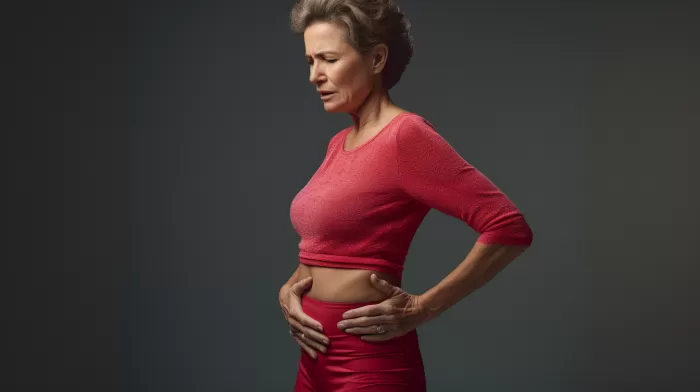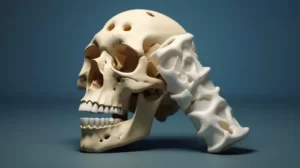Chronic anxiety doesn’t just make you miserable, it messes with your health too. Research shows anxiety puts you at a higher risk for heart problems, stomach problems, and respiratory problems. But there’s one anxiety-related health risk that even researchers didn’t know about until now… It’s bad for your bones.
If you’re a woman, you probably know that once you hit 35, your bone mass starts slipping away. But a new study shows that this bone loss is far worse if you have high anxiety.
The bone-ruining effect of high anxiety
A recent scientific analysis that included 200 postmenopausal Italian women concluded that anxious women have worse bone health.
Women with high anxiety have lower bone mineral density scores in the lumbar spine (a.k.a. the lower back) and the femoral neck (a.k.a. the area below the ball of the hip joint).
Bone mineral density indicates the strength of your bones based on how much calcium and other minerals is in them. It can tell you whether you have osteopenia (mild bone loss) or osteoporosis (severe bone loss).
Now, if you have low bone mineral density in your back or hip area like the women in this study, you may also have pain and a loss of mobility. So, it’s something you want to nip in the bud sooner rather than later.
Anxious women had another serious bone problem too…
They were more at risk for fractures. Women with high anxiety had a 4% higher risk of developing a major fracture over the course of 10 years and a 3% higher risk of developing a hip fracture during that time.
Why do anxious women have bad bone health?
Well, researchers have a couple of theories. They say it may be because women with high anxiety are more likely to engage in unhealthy behaviors like smoking and eating a poor diet.
The stress hormones created when you’re feeling anxious may also impact bone density and health. Plus, studies show that women with high anxiety have lower vitamin D levels, and vitamin D levels impact bone fracture risk.
So, it could be any one of these things… or a combination of all of them.
What can you do about your anxiety?
I know what you’re thinking… just one more thing to be anxious about, right?
That is, of course, unless you make a conscious decision right now to stop the cycle of anxiety. Be positive and proactive instead, and find ways to ease your anxiety and improve your bone health.
I deal with high anxiety too. So, I know it can be hard to get chronic anxiety in check. But I’ve seen a huge decrease in my anxiety symptoms by following a few simple habits, like:
- Meditating daily. This habit makes the biggest difference for me. Meditating can calm your mind and trigger the relaxation response in your body. There are so many different types of meditation you can try…mindfulness meditation, breath awareness meditation, guided visualizations. The best way to figure out what type is best for you is to try a few different kinds and see how they make you feel. There are a lot of great guided meditations for anxiety on YouTube, like this guided meditation that helps you detach from overthinking.
- Exercising daily. Exercise is a great way to relieve stress and anxiety. When you exercise, your body releases feel-good hormones that reduce your chance of feeling anxious, stressed, or depressed.
- Avoiding anxiety-triggering foods. What you eat plays a larger role in your mental and emotional state than you may realize. Research shows that some of the worst dietary culprits when it comes to anxiety are caffeine, artificial sweeteners, sugar, nightshades, and refined carbs.
- Taking anxiety-relieving herbs. When your anxiety gets really bad, you can turn to calming herbs like valerian, passionflower, kava, chamomile, and lemon balm. I don’t take these herbs daily, but they come in handy during times of high anxiety and stress. Buy a few anxiety-relieving herbs and have them on hand for when you really need them.
- Reach for anxiety-relieving supplements, like phosphatidylserine (PS). Clinical studies have found that taking supplemental PS reduces serum adrenocorticotropin (ACTH) and cortisol levels, as well as salivary cortisol levels following mental stress. In other words, PS helps blunt the effects of stress by decreasing blood levels of the stress hormones ACTH, cortisol, epinephrine, and norepinephrine.
When coping with anxiety, remember that there are various strategies and resources available to help. Experiment with different methods to find what works best for you and keep in mind that addressing anxiety can also lead to improvements in your overall bone health.



